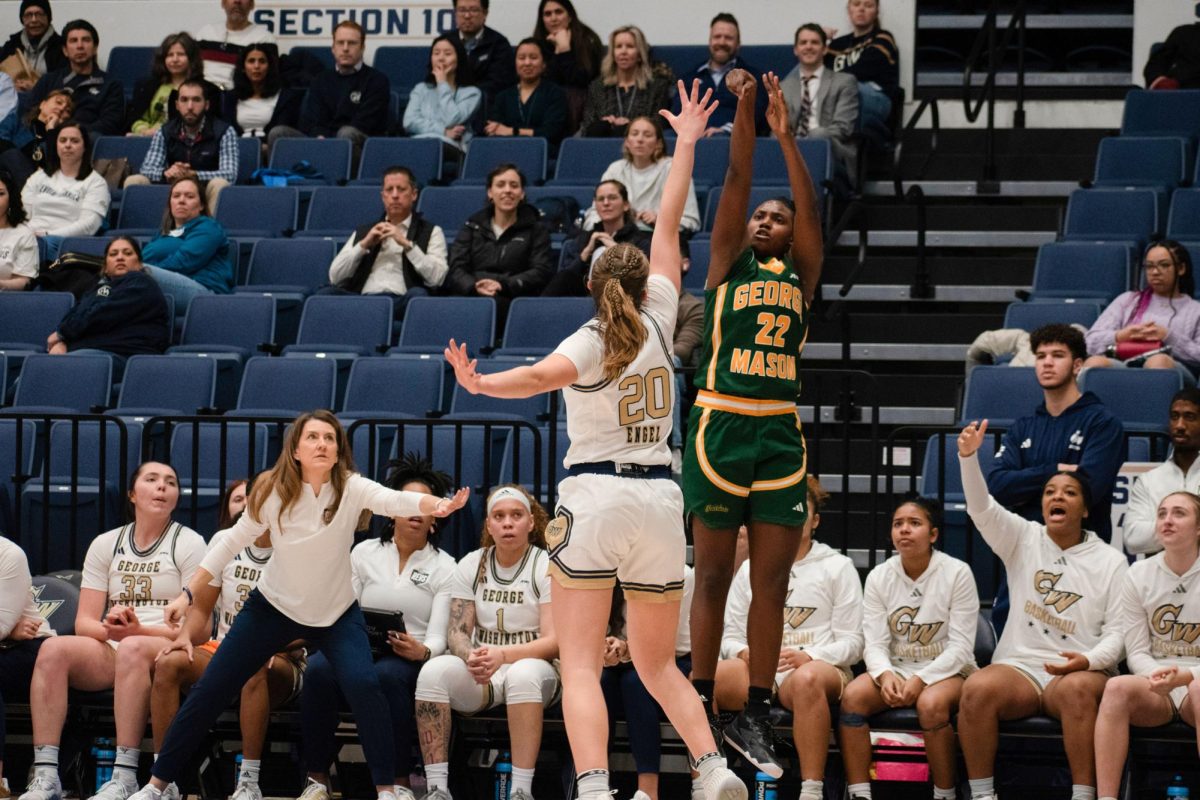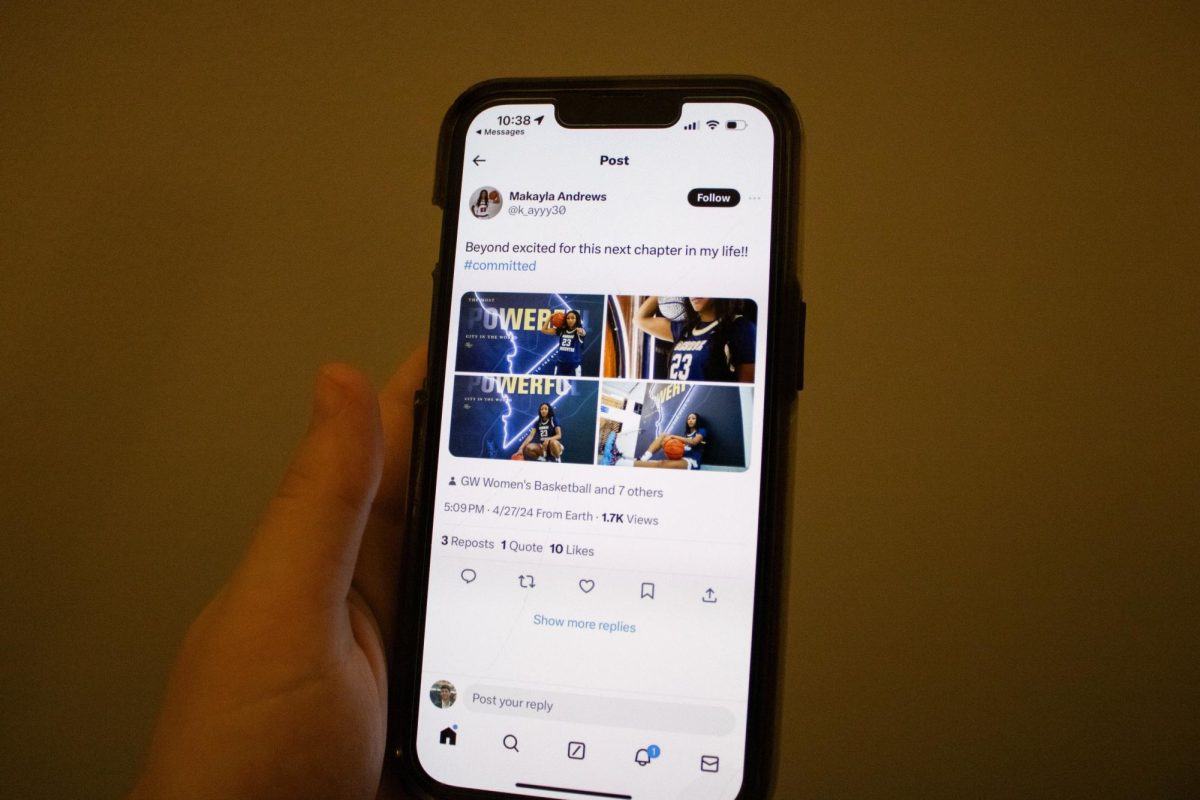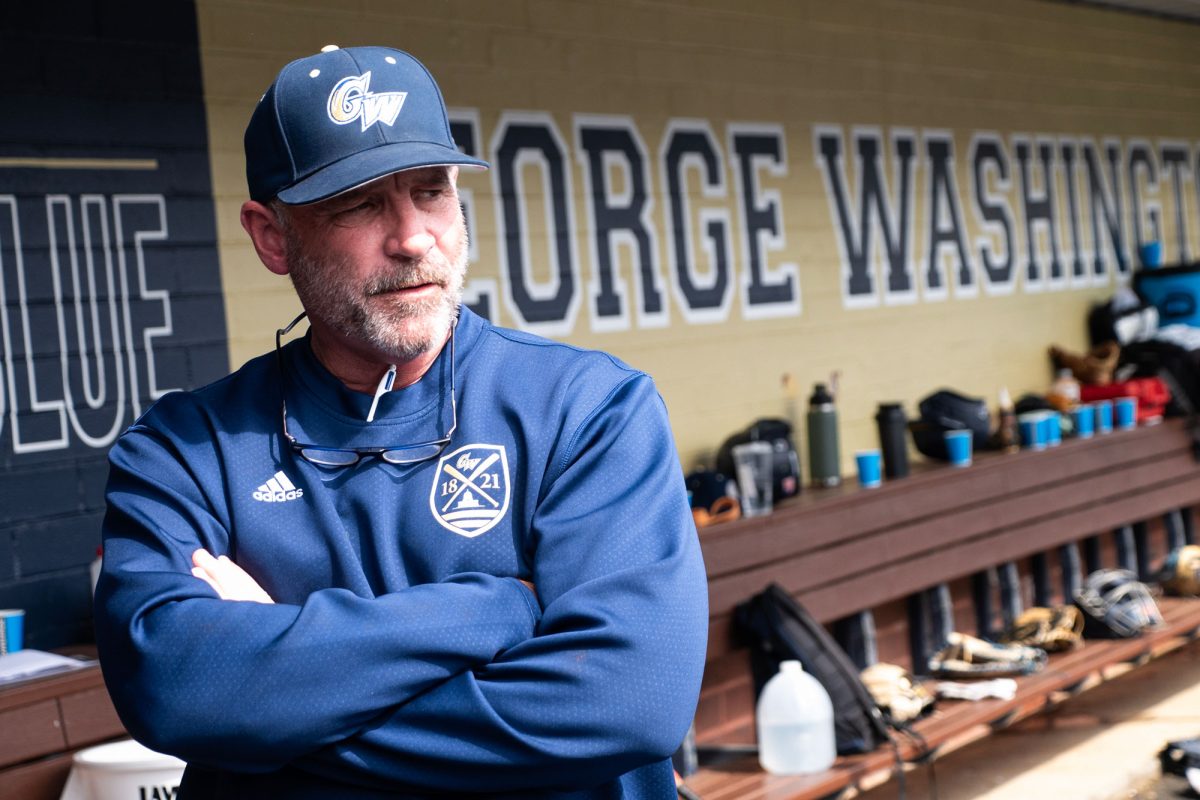What do you get when you mix natives of England, Iceland, Canada and the Caribbean with 18 Americans and put them under the control of an Englishman? The GW men’s soccer team. Fifteen-year veteran head coach George Lidster increasingly looks overseas to build winning programs at GW, a system that has worked for him for over a decade.
“Soccer is a global sport, more than any other one, and other countries play it at a higher level,” he said.
Lidster said he looks to foreign national teams and uses word of mouth in overseas recruiting to find some of his best players. This year is no different.
In addition to the team’s top two leading scorers, Icelandic junior Arnar Johannsson and English senior Matt Osborne, three other regular starters come from outside the U.S. Canadian senior midfielder Riccardo Forno compliments Johannsson and Osborne on offense, while Trinidadian junior Sean Ross and English freshman Ben Mortimer anchor the Colonial defense.
Despite their diverse backgrounds, the Colonials have come together on the Mt. Vernon field with two things in common: their love of the game and drive to win.
Mortimer said he did not have any trouble adjusting to America, in large part because of his teammates.
“They’re all a lovely bunch of lads. It’s been brilliant,” he said. “It’s great starting a career here in soccer.”
Junior Justin Evans, an Ohio native, also noted the close-knit nature of the team. “It doesn’t matter where anyone’s from,” he said. “We’re all family.”
Lidster said the diversity of the team is an asset to all of his players, particularly off the field.
“It’s beneficial for both parties,” he said. “Living, working and socializing with the other players helps them understand other cultures and ways of life. It broadens everyone’s horizons.”
The international players said they came to the United States looking for a change of scenery and great opportunities and, after meeting with Lidster, they were attracted by what GW had to offer.
Ross said GW was the best of his college choices in academics and athletics. His defensive counterpart, Mortimer, agreed.
“The university system in England is not as good, and there aren’t quality coaches there,” he said.
Lidster said he sees the diversity of this team as a reflection of GW’s own student body. Being located in the nation’s capital has attracted students from all over the world, he said, and that has become a major appeal for the athletes as well.
Ross, Mortimer and Johannsson each mentioned D.C. as their favorite part of America.
“I came down, had a look and decided it was the place for me,” Mortimer said. “It’s very cosmopolitan; I like the stylish architecture.”
Some of the international players said they did have problems adjusting to some aspects of life in America and in D.C., such as the climate, learning different playing styles and just getting used to American culture.
Ross said the hardest change for him was adjusting to the cold weather, coming from the sunny island of Trinidad to the temperamental weather of Washington, D.C.
But the green of the soccer field unites them all, and the Colonials will find out if their diverse but closely-knit roster can bring them back to the Atlantic 10 Championship after a one-year hiatus from the tournament.







